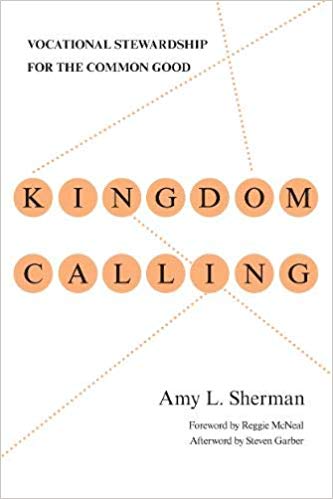
(Note: I wrote this article and posted it on my blog before my book, Immanuel Labor – God’s Presence in our Profession was published by WestBow Press in February 2018. This critical topic was later included in the book. I invite you to check it out. This article was also published in the Center for Faith & Work at LeTourneau University blog, the Institute for Faith, Work & Economics blog, the Collaborative Orlando blog, the Church Job Finder website, and the Coram Deo blog.)
In a previous article, I have made the case that by His very nature God is a worker. He has created all things and He sustains His creation. Because God works, this gives our work value.
So, I have to ask. What kinds of work does God do today? More importantly, by what means does He get it done?
Amy Sherman, in her book Kingdom Calling, shares a concept of God as our vocational model, which she credits author Robert Banks from his book Faith Goes to Work. He describes the different kinds of work that God does and how our human vocations can fit into this model:
- Redemptive work: God’s saving and reconciling actions
- Creative work: God’s fashioning of the physical and human world
- Providential work: God’s provision for and sustaining of humans and the creation
- Justice work: God’s maintenance of justice
- Compassionate work: God’s involvement in comforting, healing, guiding, and shepherding
- Revelatory work: God’s work to enlighten with truth
For example, with respect to God’s Redemptive work , jobs such as “evangelists, pastors, counselors, and peacemakers” seem to fit. Sherman adds to the list, “So do writers, artists, producers, songwriters, poets, and actors who incorporate redemptive elements in their stories, novels, songs, films, performances and other works.” Sherman continues: “In all these various ways, God the Father continues his creative, sustaining, and redeeming work through our human labor. This gives our work great dignity and purpose.”
Stevens, in his book, The Other Six Days, says something similar: “Every legitimate human occupation (paid or unpaid) is some dimension of God’s own work: making, designing, doing chores, beautifying, organizing, helping, bringing dignity, and leading.”
You can easily take almost any job that is worth doing and put it into one of these categories. Those who perform these jobs are participating in God’s work in this world.
I have recently added another category: Restoration work: God’s power to repair, clean, reset, and make new. It occurred to me that dental hygienists, mechanics, custodians, and anyone who fixes the things we need (hair, cars, plumbing, etc.) would be doing this kind of work.
I would have to say that as a civilian employee of the United States Department of Defense, my job would fall into the category of Justice work.
Where do you think that your particular job would fit into this model?
I think it is fairly obvious that if God does these kinds of things, and we find ourselves in jobs doing these same things, then we are co-workers with God in the work He is doing now.
This is a radical and revolutionary concept, don’t you think? I think that it just might change the way you look at your job every day!

Master Sergeant Russell E. Gehrlein (U.S. Army, Retired) is a Christian, husband of 38 years, father of three, grandfather of four, blogger, and author of “Immanuel Labor – God’s Presence in our Profession: A Biblical, Theological, and Practical Approach to the Doctrine of Work”, published by WestBow Press in February 2018. He received a B.S. in Mathematics from Colorado State University in 1980 and an M.A. in Biblical Studies from Grand Rapids Theological Seminary in 2015. He is also a former junior/senior high school math and science teacher and youth pastor. Russ currently works as a Department of the Army civilian at Fort Leonard Wood, Missouri.
2 thoughts on “What Kinds of Vocations Does God Model?”